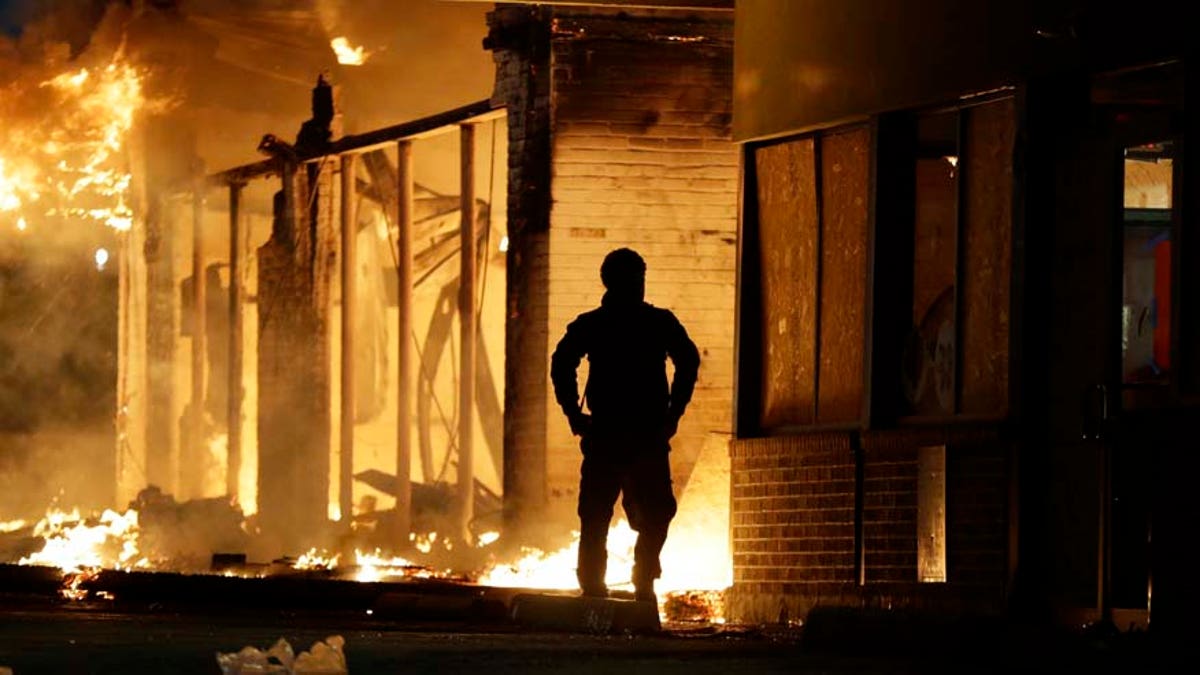
(AP)
At the beginning of the aftermath of Michael Brown’s tragic death in Ferguson America had little information to guide its understanding. We knew a young, unarmed, black man was shot to death by a police officer. We learned that some witnesses had him raise his hands in the air before one or more of the fatal shots were fired.
But more importantly, we did not know the name of the officer involved in shooting. It took six full days for the police or the prosecutor to reveal the name of Officer Darren Wilson. Of course the police and the County Prosecuting Attorney Robert McCulloch knew his identity. It wouldn’t be surprising if the prosecutor knew him personally since the prosecutor’s father and brothers were Ferguson police officers and his mother was a clerk in the department. And of course, Officer Wilson’s defense counsel and his union representatives were aware that he fired all the shots in question. Indeed, they assuredly were preparing a defense to the shooting in the interim before anyone can question Wilson on the record.
A tragedy was multiplied last night. Only a federal indictment can rectify some of this harm.
This deliberate shielding of an officer involved in shooting a civilian is nothing new in policing. In New York City it was called the “48 hour” rule. It was won at the union negotiating table and literally immunized any formal investigation of any member of the Police Benevolent Union until he or she were allowed to consult with union attorneys. The practice was eventually outlawed by legislation – but that has not stopped the union from lobbying to repeal the state law and restore the respite every year.
No one else in America gets 48 hours of down time to prepare against criminal charges in advance – let alone the 144 hours that Officer Wilson got to prepare a defense.
That was only the beginning of the accommodations granted Officer Wilson in the most watched legal proceeding in years. So if you want to identify who should be held accountable for Monday’s travesty of justice look no further than the prosecutor’s office.
Indeed, in less than a week we have two clear examples of the unique power that prosecutors hold by way of prosecutorial discretion. Last week President Obama ordered his law enforcement apparatus to stand down, announcing that it was more important to maintain families together and urge the Latino undocumented to come out of the shadows – with clear benefits to the U.S. economy – than to prosecute 5 million more deportations.
On Monday night, St. Louis County Prosecuting Attorney Robert McCulloch announced that his painstaking presentation of “every scap of evidence” to the Grand Jury in its search for the “truth” came back with no charges against Officer Wilson.
Each of these decisions is authorized by the discretion we place on the arm of the executive branch that decides who gets charged, what gets charged, what is bail, and what are the sentencing options. We may read quite a bit about the exclusive power of grand juries to indict and how that participation provides community checks and balances on executive power. But the reality is far different. The well-worn colloquial observation that any prosecutor worth his salt can indict even a ham sandwich says it all. Monday night’s decision in Ferguson was the handiwork of McCulloch.
All grand juries are led in their deliberations by the local prosecutor. In Ferguson that prosecutor abdicated his role by playing the role of bystander rather than a representative of the victim's family. Who in that Grand Jury courtroom advanced the interest of the victim of the possible crime? Apparently, no one. That is not justice nor will it restore faith in the system for the residents of Ferguson or for black and Latino communities throughout the country.
Instead, McCulloch presented every bit of evidence at his disposal as if the grand jury’s role was to decide the guilt or innocence of Officer Wilson. This is patently wrong. What it needed to decide was whether there was probable cause that any of the following crimes were committed: first degree murder, second degree murder, voluntary manslaughter or involuntary manslaughter. The first two are unlikely without some evidence of malice. But the last two are possible with evidence that the officer acted negligently.
Some accounts had Mr. Brown with his hands up at the time of the shooting. That would support probable cause. Instead, on Monday the Prosecutor referred several times to acts of shoplifting by Mr. Brown of cigarillos. McColluch then referred to the officer’s testimony that he was aware of the robbery. So can shoplifting ever justify the use of deadly force? In Missouri it can only do if it is in the act of a violent felony. So this begs the question of Wilson’s negligence in shooting an unarmed person several times.
A tragedy was multiplied last night. Only a federal indictment can rectify some of this harm. The Brown family is in the same position as the families of Anthony Baez and countless others. Everyone now awaits Department of Justice action – it will not be easy but it needs to be done to restore some faith in the system.
But at the end of the day Mr. Brown was shot dead unarmed and with his hands in the air. That alone should have forced the local criminal justice system to act. Its failure to do so – precisely because the local prosecutor inverted the grand jury’s role – cannot be excused even if the federal government steps in.
